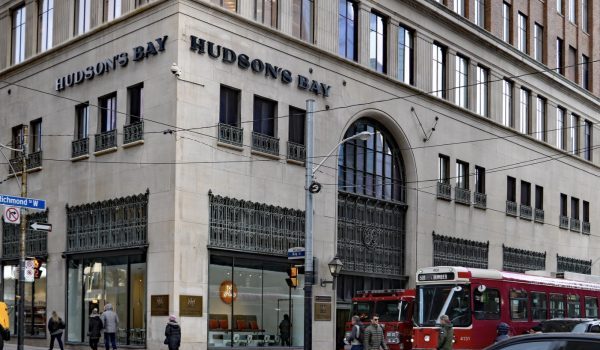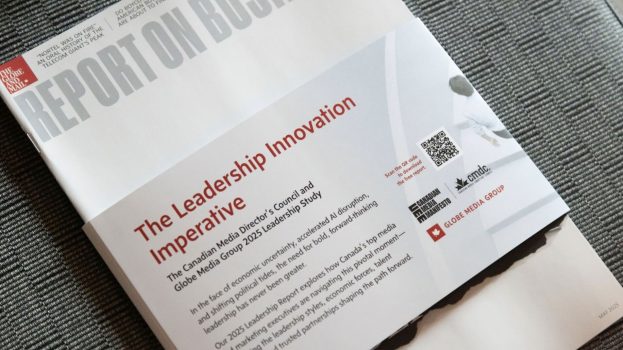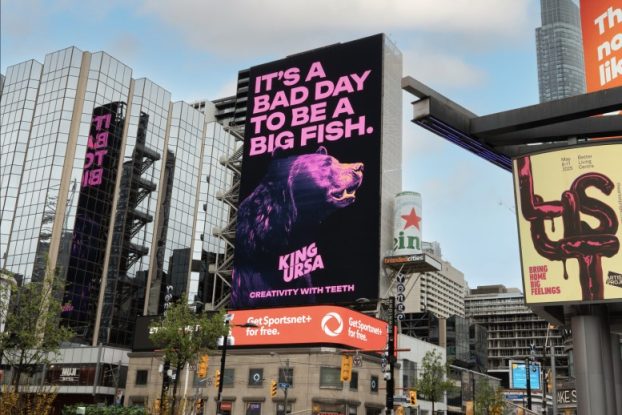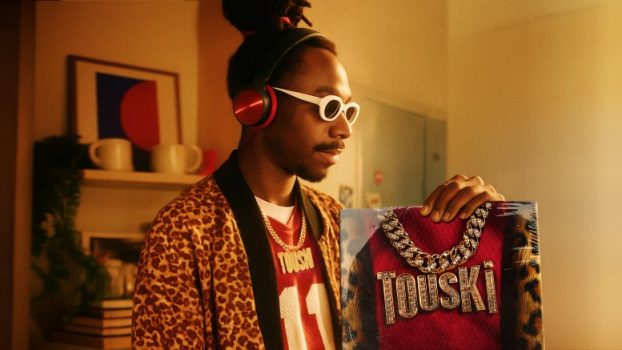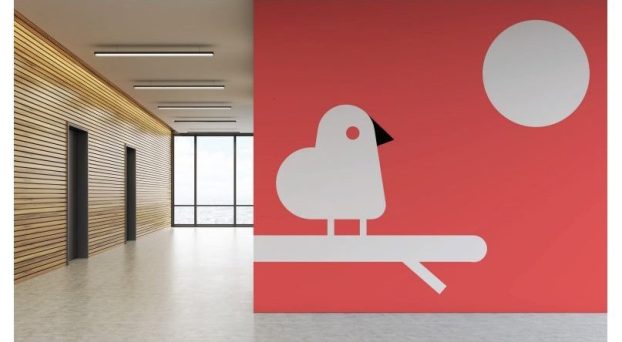That sound you heard was not a ‘swish.’ It was a sigh of relief, heaved by basketball advertisers, sponsors and hardcore fans, after discovering that the nba season – albeit a truncated one – has been salvaged. With only seconds remaining on the labour talks shot-clock, owners and players reached an agreement last week, ensuring that play would begin in early February.
Canada’s nba franchises, the Toronto Raptors and the Vancouver Grizzlies, have never found it easy to win games. And now they face an even more formidable challenge: winning back disgruntled fans who have been alienated by the four-month lockout.
Clearly, both teams wish to avoid the debacle after Major League Baseball’s lengthy 1994 player strike. And with basketball star Michael Jordan deciding to retire, the nba has lost its version of Mark McGwire, the hulking slugger whose home run race with Sammy Sosa helped rejuvenate baseball.
Just how daunting will it be to reconnect with fans? According to a u.s. survey conducted by Audits & Survey Worldwide just after the settlement, 37% of u.s. fans surveyed said they didn’t care whether the season resumed. A full 12% said they wished the season wouldn’t resume at all. And this is America, remember, where basketball is an entrenched institution.
Both the Raptors and the Grizzlies are launching a full court press to win back fan support and assuage sponsors and advertisers rattled by the lockout. And the teams are preparing for the worst.
‘We’re not taking anything for granted. We’re assuming every one of those ticket sales has to be earned harder than ever before,’ says Michael Downey, vice-president sales and marketing for Maple Leaf Sports and Entertainment, which controls the Toronto Raptors, the Toronto Maple Leafs and the new Air Canada Centre that will house both teams.
To thank fans for their patience, the teams are launching a two-pronged ‘back-to-business’ plan to bring fans back to the stadiums and recapture their television audience.
Many fans reacted in disgust as wealthy players and owners quibbled over exorbitant sums of money. The nba is sensitive to this disenchantment, and as a result, it will not employ a slick marketing campaign to attract fans back to the stadiums, Downey says.
‘Fans will see through that,’ he says. ‘The approach will be more one of working with the teams and getting players into the community.’
The nba is still fleshing out the details of any national promotional campaign, says Ken Derrett, managing director of Toronto-based NBA Canada.
‘This is not going to be a three-week process,’ he said. ‘This is something we are going to have to work on for the next year.’
The Raptors will air three television spots in early February. The ads, produced by Toronto-based Echo Advertising & Marketing, will use humour to try to humanize the players, many of whom have earned a reputation as spoiled multi-millionaires. The spots will feature Raptors players making spontaneous visits to families, and interacting with children.
‘We’re doing this for two reasons: one, the marketplace doesn’t really know our players,’ says Downey. ‘And two, we feel that putting them in a novel setting is the right thing to do as we emerge from the lockout.’
The ads will run frequently during the month of February and continue on Raptors’ broadcasts for the remainder of the season. The Vancouver Grizzlies plan to run similar ads, which will be produced by Oregon-based Tracey Lieweke and Co.
In addition to the mass media campaign, the Raptors sent an automated voicemail message to their season ticket holders featuring Raptors’ coach Butch Carter. A direct mail campaign is also underway to offer season ticket holders in the Air Canada Centre upgraded seats.
Both teams are also offering aggressive incentives to get fans back in the stands. Each will host an exhibition game that will be free to the public. In addition, open practice sessions are planned so fans can see their favourite players in action.
But the Raptors do enjoy an advantage that other nba teams don’t possess – the cachet of a new facility. The Raptors are slated to move into the new $265-million Air Canada Centre in late February, a stadium that also plays host to the Toronto Maple Leafs. And because Maple Leafs tickets are in such high demand, sports fans wishing to see the new facility may be persuaded to buy Raptors tickets.
As a result, the Raptors will play only a handful of games in Toronto’s SkyDome, the troubled bubble that is a notoriously poor venue for watching basketball games.
‘Irrespective of the lockout, the biggest issue our team faced was that our fans didn’t really want to go back to see the team play at the SkyDome,’ says Downey.
Depending upon the schedule makers, the Raptors are expected to play three or four games at the Dome. To entice fans, the seats in the upper bowl will be free for each of these games. Season ticket holders that had seats in this section, meanwhile, will have their tickets upgraded.
The Raptors also have a slew of ticket promotions planned for their move into the Air Canada Centre. These include a ‘Family Four-pack’, which will offer four tickets, hot dogs, drinks and programs, and a ‘Pick-em Pack,’ which includes opening night at the centre, any five games, and the option to purchase a Toronto Maple Leafs ticket.
Coca-Cola, which is also one of the Raptors’ platinum partners, is sponsoring a ‘Sprite-Zone’ program that is designed to make tickets more affordable for the everyday fan. As part of the promotion, 1,350 tickets per game will be offered for $9.99, down from the regular price of $24. Molson is offering a similar price discount for the Vancouver Grizzlies.
The Grizzlies, meanwhile, have earmarked $700,000 for their ‘Hot Winter Nights’ campaign to bring fans back into the bleachers.
‘We are here to convince our fans that we offer good entertainment value, win or lose,’ said John Rizzardini, Orca Bay’s vice-president of sales and service.
While the Grizzlies will not be able to cash in on the appeal of a new building, they do enjoy the benefit of a longstanding relationship with most of their corporate sponsors. The only new major partner for the West Coast team is Molson, which signed a five-year-deal with Orca Bay covering both the Grizzlies and the Canucks.
Most of the Raptors’ sponsors, meanwhile, knew that the season could be in jeopardy when they signed their contracts. And on the heels of a 16-win season that was marred by off-court problems, they weren’t exactly negotiating from a position of power.
Nevertheless, both the Raptors and the Grizzlies have taken extraordinary pains to keep their sponsors happy.
Raptors partners will be offered cash compensation for the games that were cancelled this year, Downey says.
‘We have met with every Raptor partner, and give or take a few, we have already agreed in principal on the refund. Probably 90% of the partners know what cheque they are getting back right now,’ he says.
The Grizzlies, meanwhile, have not decided on their compensation packages, but they are determined to do whatever it takes to keep their sponsors happy, Rizzardini says.
Still, it remains to be seen whether fans will return to basketball in Canada and how that will affect the overall value of the nba sponsorship deals. Sports marketers argue that sponsors and advertisers will ultimately go where the fans are – and with the abridged season, it will be difficult to gauge true fan support.
To atone for the lost games and mitigate fan apathy, the teams are offering a host of value-added opportunities for their sponsors. The Raptors are ‘bonusing’ sponsors by offering them free tickets, and branding unsold media inventory.
Both the Raptors and Grizzlies have adopted a less-is-more strategy of attracting a core group of large, long-term partners. And it appears these sponsors are committed to the project – not one has jumped ship as a result of the lockout.
‘The partnership has been great for us,’ says Cassandra McRae, Olympic and sports marketing manager for IBM Canada. ibm is a platinum sponsor of the Air Canada Centre. ibm is also a worldwide partner of the nba.
McRae says she was impressed by the Raptors’ diligence in keeping sponsors informed during the lockout, and by their willingness to keep sponsors on-side now that the season is back in place.
‘Considering they [Maple Leaf Sports] have a stranglehold on sports in this city, they have gone to great lengths for us,’ she says.
But according to Michael Gouinlock, an associate at Lang & Associates, a Toronto-based international associative marketing agency, the real impact of the lockout on sponsorship values will not be known until well into the next season.
‘The value of these properties has clearly dropped,’ he says. ‘There is still potential there, but it will be a long haul to bring them back.’
Without Michael Jordan, the jewel in the nba’s marketing crown, the task will be made all that more difficult, he says.
Sponsors will be looking for additional commitment not only from the Raptors and Grizzlies business organizations, but from the players, who will be essential in reconnecting with the fans, he says.
‘There is a lot of talk about more community involvement,’ Gouinlock says. ‘But if you have to deal with the team, and the player’s agent and a whole bunch of people, and then the player shows up and acts aloof, it’s not going to be worth the effort.’
Sidebar: Experts think audiences will be down
Basketball players may have been locked out by the four-month nba labour dispute, but advertisers and sports broadcasters say they’ve hardly been affected by the strike and aren’t expecting a slam-dunk when the games return next month.
Fan alienation and apathy will likely translate into a somewhat smaller television audience for the shortened season, which is slated to commence the first week of February.
‘We are forecasting that audiences could be down 10-20%,’ says Sunni Boot, president of Optimedia, one of Canada’s largest media buying operations. ‘The big issue in the buying and selling of this property will be deciding exactly where the numbers net out: It’s not so much price as what you will get for that price.’
And now that Michael Jordan has announced his decision to retire, the ratings could slide even further. Jordan has always been a major draw for the nba – both at the gate and on television – and advertisers had been hoping to cash in on the appeal of his final season.
Nevertheless, media buyers have not been panicked by the absence of basketball over the past several months.
The nba enjoys a lukewarm following in Canada, where hockey continues to rule the hearts – and remote controls – of Canadian sports fans.
‘We don’t feel like we’ve been locked out of anything major,’ says Janet Callaghan, vice-president, corporate media director at MBS/The Media Company.
She describes television ratings for Canadian basketball as ‘fragile’ at best and says there are many other effective channels to target the 18-24 male demographic.
The nba controls the inventory of advertising spots on their broadcasts and it’s too soon to tell whether advertisers will return in the numbers they occupied before the strike, said John Rizzardini, vice president of sales and service for Orca Bay, which controls the Grizzlies basketball team and the Vancouver Canucks hockey franchise.
The Grizzlies were selling about 75% of the available spots before the lockout and the numbers look stable for now, he says.
Phil King, vice-president of programming at sports specialty television service tsn says he’s relieved to see basketball return to its line-up, but that interest in baseball, football and even junior hockey helped keep ratings buoyant during the lockout. SS and JG

